The Grassroot Institute of Hawaii invited me to speak the other day. Grassroot Institute President Keli‘i Akina told me he’d been following my writing and thinks some of our values align.
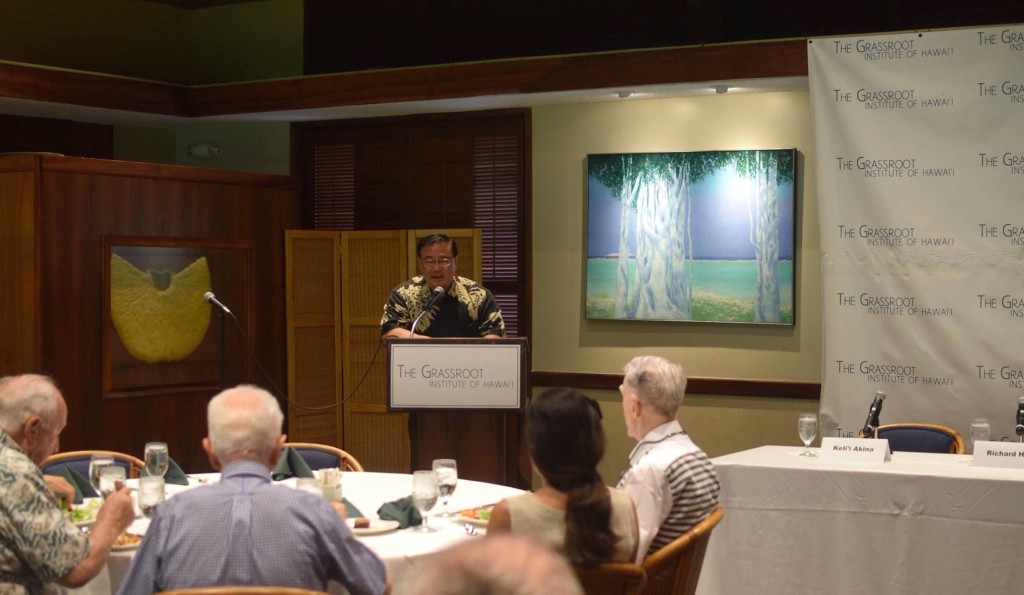
The format was that of a Q&A. Members asked me for my thoughts about the Thirty Meter Telescope and the protest, for instance. I think that not compromising is a difficult position to take, I told them, because then you’re not adaptable to the future.
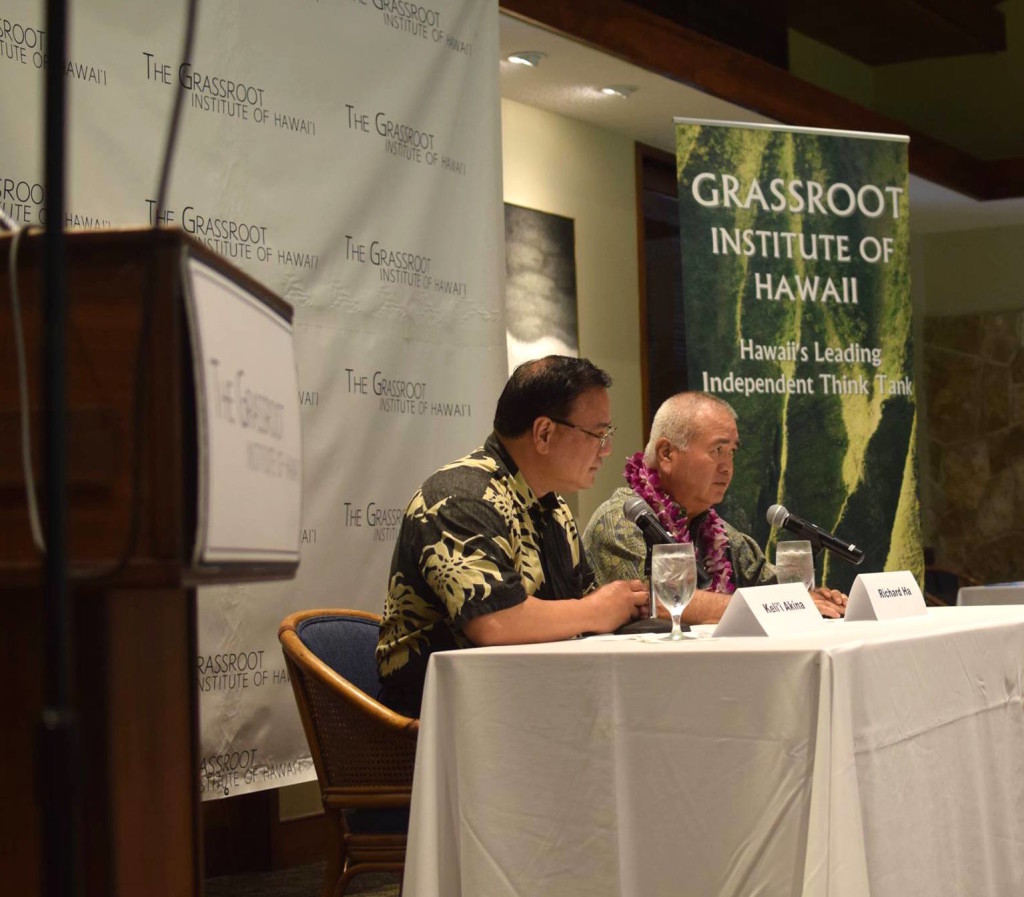
They asked me about GMOs, and I told them what I have said before: just because science can detect gold in seawater doesn’t mean you would invest in a gold mine in Hilo Bay. You’d lose money. The pluses have to exceed the minuses, or else you have to go do something else. There’s no free lunch. This is true for organisms, organizations and civilizations.
I told them I welcome change, and that my strategy is always to look 10 years to the future and plan for that. My thinking is that you have to make small changes along the way, so you don’t need to make catastrophic and often impossible changes at the last minute. That’s the difference in short-term vs. long-term thinking. This isn’t anything new; it’s what my Pop taught me when I was 10 years old. Though there were some years after that when I was smarter than my parents, I said, but then I got back to it.
I told them that by quoting my Pop, I don’t have to remember what I said yesterday, and everybody laughed.
- Not no can, can!
- Get thousand reason why no can. I just looking for the one reason why can.
- Find two solutions for every problem and one more just in case.
- Just because science can detect gold in seawater doesn’t mean you would invest in a gold mine in Hilo Bay. Lose money.
- The pluses have to exceed the minuses or you have to go do something else.
- There is no free lunch. That is true for organisms, organizations and civilizations.
- If you look outside your front porch and you see lots of rubbah slippahs, you are a rubbah slippah person.
- Plan for the future so you can make small adjustments as you go instead of one big painful decision when you no more time.
I’ve also added a couple more things:
- Two-thirds of the economy is made up of consumer spending. If the folks on the lowest rungs of the economic ladder had extra spending money, they would spend and everyone would benefit. I call that “trickle-up economics.”
- We all come back or no one comes back. That was the unwritten rule in Vietnam and it influenced me a lot in later years. It became that it’s about all of us, not just a few of us.
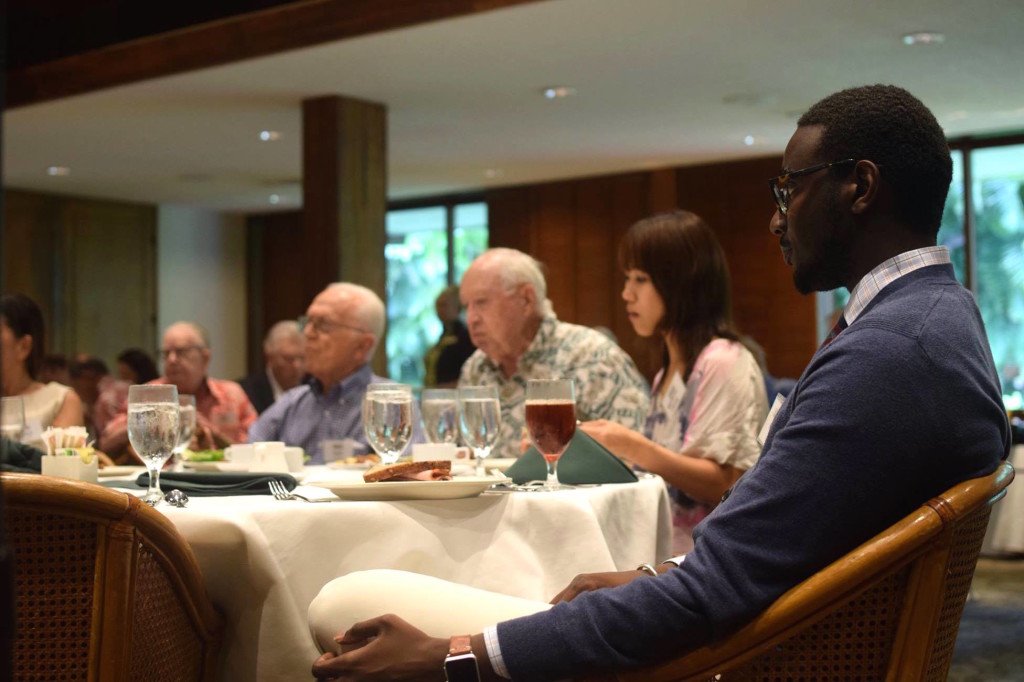
Somebody came up to be afterward and said, “Farmers are so grounded.” He said something I think is right on target – that it’s not about the details, because you can get technical people to work on the details. It’s about planning for the future.
My Pop only went to the sixth grade but he was very practical and he knew about survival. He taught me most of what I needed to survive in this world.

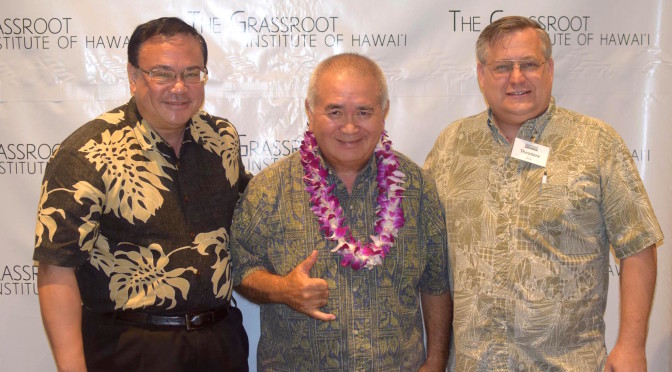
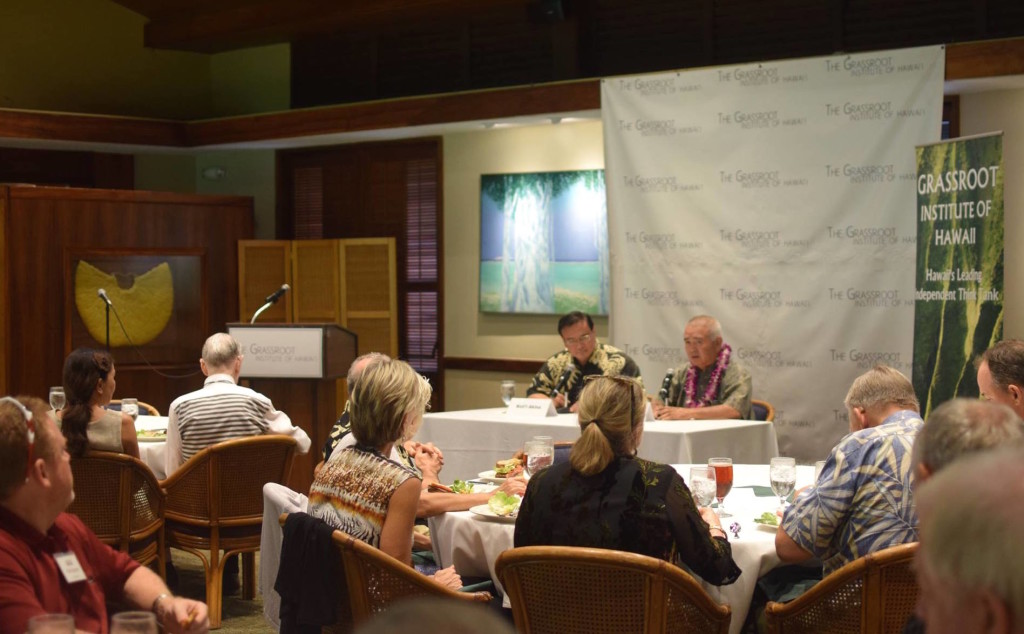
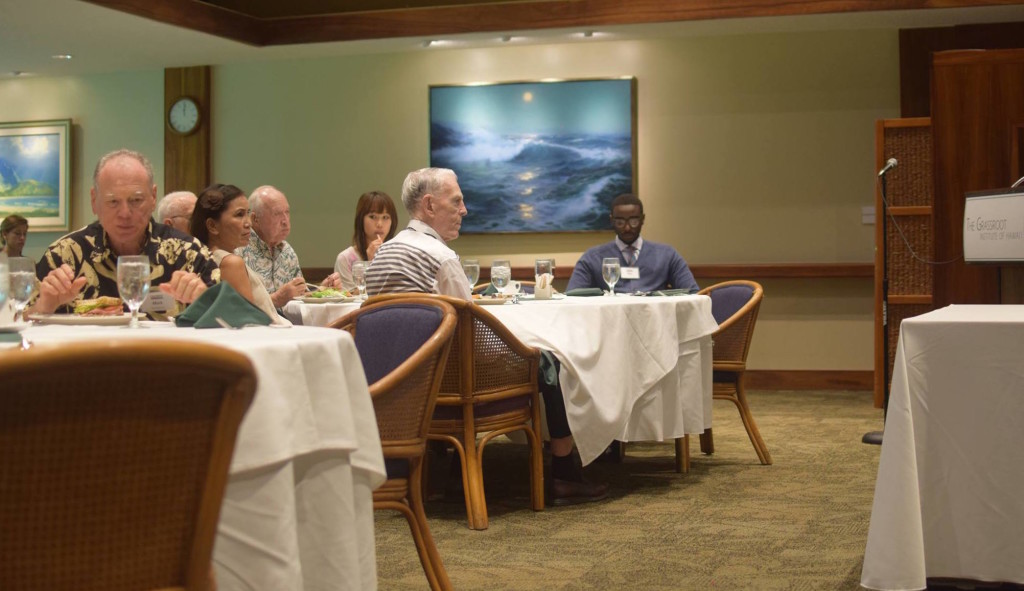
richard ha is a down to earth common sense intelligent man follow hjm
you will not go far wrong
Richard, all good, practical wisdom. I reinforce couple of critical aspects in your rational: 1. Flexibility leads to a required dynamism that is required to “float” and “leverage” the future, AND purposeful “change” insures that “can” is in the midst of any planning; need to look for it. A final and of oaramount importance is ATTITUDE. This is the “can” element.